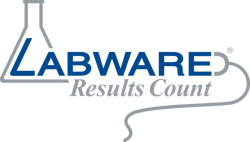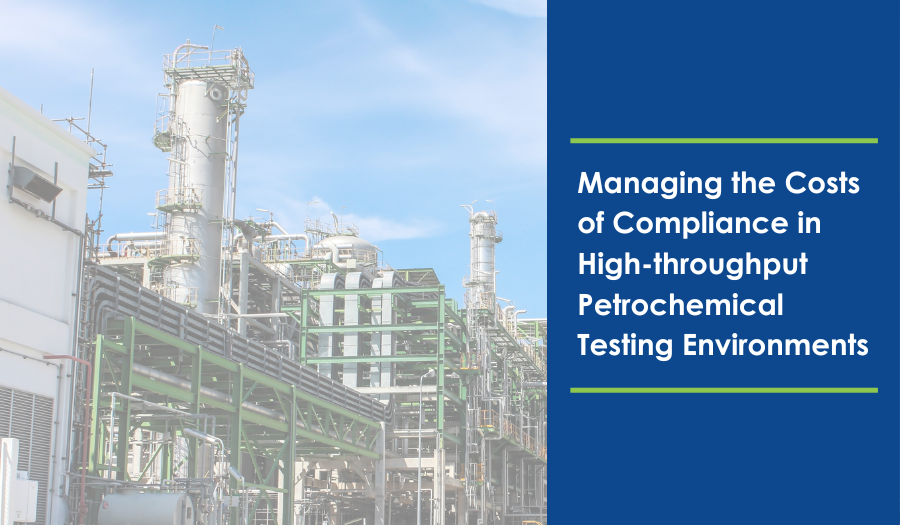
In the rapidly evolving world of petrochemical lab management, staying ahead of industry trends and regulatory requirements is crucial for success. As a key player in this sector, it's essential to understand how effective laboratory practices can impact your organization's bottom line.
Our upcoming blog post delves into the importance of compliance in petrochemical testing, touching on meeting regulations through accurate testing, reducing costs by avoiding non-compliance penalties, and maintaining customer trust through transparency. We also explore LabWare LIMS - an innovative solution designed to streamline laboratory processes by automating workflows, integrating existing hardware systems seamlessly, and minimizing errors that may result in costly consequences.
Furthermore, we discuss managing sulfur levels in crude oil production as well as quality control measures using lab management software. Lastly, we highlight the benefits of LabWare LIMS in high-throughput petrochemical testing environments such as enhanced efficiency through automation and ensuring data accuracy for regulatory compliance.
Stay tuned to learn more about these vital aspects of petrochemical lab management and how they can help you optimize resources while staying competitive within the industry.
The Importance of Compliance in Petrochemical Testing
Compliance with regulatory standards is crucial for petrochemical companies to maintain a strong reputation and avoid legal consequences. Accurate testing results are essential for meeting industry regulations, reducing costs, and maintaining customer trust. In this section, we will discuss the importance of adhering to these guidelines and how lab management software like LabWare can assist in achieving this goal.
Meeting Industry Regulations Through Accurate Testing
To comply with standards set by regulatory bodies such as the Clean Air Act (CAA), petrochemical companies must ensure they adhere to stringent regulations. Ensuring accurate test results is vital for compliance with these standards, as non-compliant facilities may face hefty fines or even shutdowns. Lab management software helps laboratories generate precise data that enables organizations to meet their regulatory obligations confidently.
Reducing Costs by Avoiding Non-Compliance Penalties
Non-conformity with industry standards can have costly consequences for petrochemical businesses. For example, non-compliant facilities may be subject to substantial fines under the CAA or other environmental laws depending on the severity of violations. By implementing lab management software like LabWare's Laboratory Information Management System (LIMS), organizations can streamline their laboratory processes while ensuring accurate test results that minimize risks associated with non-compliance penalties.
Maintaining Customer Trust Through Transparency
- Data integrity: Customers expect reliable data when it comes to product quality and safety assurances from petrochemical companies. Lab management software helps maintain data integrity by providing a centralized platform for tracking and storing test results, ensuring transparency throughout the entire testing process.
- Quality assurance: Implementing lab management software enables organizations to establish robust quality control measures that ensure consistent product quality across all stages of production. This level of consistency builds customer trust in the company's commitment to delivering safe and reliable products.
- Regulatory compliance: Demonstrating adherence to industry regulations is crucial for maintaining customer confidence in petrochemical companies' ability to provide high-quality products while minimizing environmental impacts. Lab management software assists organizations in achieving regulatory compliance through accurate testing, which fosters long-term relationships with customers based on trust and reliability.
In today's competitive petrochemical industry, it is more important than ever for companies to prioritize compliance with industry regulations. By investing in lab management software like LabWare LIMS, organizations can streamline their laboratory processes while ensuring accurate test results that help them meet regulatory standards, avoid costly penalties associated with non-compliance, and maintain strong customer relationships built on trust and transparency.
The importance of compliance in petrochemical testing cannot be overstated, as it is essential for meeting industry regulations and maintaining customer trust. LabWare LIMS offers an innovative solution to streamline laboratory processes, providing a comprehensive system that automates existing hardware systems with minimal errors.
Key Takeaway: Compliance with regulatory standards is crucial for petrochemical companies to maintain a strong reputation and avoid legal consequences. Accurate testing results are essential for meeting industry regulations, reducing costs, and maintaining customer trust. Lab management software like LabWare can assist in achieving these goals by generating precise data that enables organizations to meet their regulatory obligations confidently while streamlining laboratory processes.
LabWare LIMS - Streamlining Laboratory Processes
In the rapidly changing petrochemical industry, efficiency and precision are essential for success. Lab management software like LabWare's Laboratory Information Management System (LIMS) plays a vital role in automating laboratory processes while integrating existing hardware systems. By streamlining workflows and ensuring data accuracy, LIMS helps petrochemical professionals expedite their work while minimizing errors that could lead to costly mistakes or violations of regulatory requirements.
Automating Laboratory Processes for Increased Efficiency
The automation capabilities offered by LabWare LIMS allow laboratories to increase productivity by reducing manual tasks and human error. With automated sample tracking, scheduling, and reporting features, lab personnel can focus on more critical aspects of their work instead of spending time on repetitive administrative tasks. Additionally, the ability to integrate with various instruments such as chromatographs or spectrometers enables seamless data transfer between devices without requiring manual input from technicians.
Integrating Existing Hardware Systems Seamlessly
A key benefit of using LabWare LIMS is its flexibility in integrating with a wide range of laboratory equipment and software applications. This allows organizations to maximize their investments in existing technology infrastructure while enjoying the benefits provided by modern lab management solutions. For example, integration with enterprise resource planning (ERP) systems, quality control platforms, or other third-party tools ensures that all relevant information is readily available within one centralized system.
Minimizing Errors That May Result In Costly Consequences
- Data Integrity: Ensuring accurate results is essential for maintaining compliance with industry regulations and avoiding costly penalties. LabWare LIMS provides built-in data validation features that help prevent errors from entering the system, such as automatic calculations, range checks, and audit trails.
- Sample Management: Proper sample handling is crucial for obtaining reliable results in petrochemical testing. LabWare LIMS offers robust sample management capabilities, including barcode scanning and automated storage location assignments to reduce the risk of mix-ups or lost samples.
- Quality Control: With its comprehensive quality control module, LabWare LIMS allows organizations to monitor their processes continuously and identify potential issues before they escalate into major problems. This proactive approach helps minimize downtime due to equipment failures or non-compliant products while ensuring customer satisfaction.
By automating laboratory processes, integrating existing hardware systems seamlessly, and minimizing errors that may result in costly consequences, LabWare's LIMS solution empowers companies to stay ahead of the curve by delivering accurate results faster than ever before.
LabWare LIMS offers a comprehensive solution for streamlining laboratory processes, providing cost savings and improved efficiency in the lab. Leveraging this technology, Petrochemical labs can effectively manage sulfur levels in crude oil production to meet environmental standards while saving money on refining operations.
Key Takeaway: LabWare LIMS is a laboratory management software that automates processes and integrates with existing hardware systems to increase efficiency in the petrochemical industry. The solution minimizes errors through data validation, sample management, and quality control modules while ensuring compliance with regulatory requirements. By leveraging LabWare LIMS, organizations can optimize their operations and deliver accurate results faster than ever before.
Managing Sulfur Levels in Crude Oil Production
In the petrochemical industry, managing sulfur levels during crude oil production is a critical aspect of operations. Effective management of sulfur content can not only provide cost savings for businesses, but also result in environmental benefits. By adhering to strict government regulations on emissions and optimizing refining processes, organizations can minimize expenses while maintaining compliance.
Environmental Benefits of Reduced Sulfur Levels
The reduction of sulfur levels in crude oil has significant environmental implications. High concentrations of sulfur dioxide (SO2) are released when fuels with high sulfur content are burned, contributing to air pollution and acid rain. This can have detrimental effects on both human health and ecosystems [source]. By effectively managing the amount of sulfur present in their products, petrochemical companies play an essential role in mitigating these negative impacts.
Cost Savings from Efficient Refining Operations
Beyond its environmental impact, reducing sulfur levels during crude oil production offers substantial financial advantages for petrochemical companies. When processing low-sulfur feedstocks, refineries require less energy and fewer resources to remove impurities like hydrogen sulfide (H2S) from the final product [source]. Consequently, lower operating costs translate into higher profit margins for businesses that successfully manage their feedstock's sulfur content.
- Fewer treatment steps: Low-sulfur feedstocks undergo fewer treatment stages compared to high-sulfur alternatives which results in cost savings.
- Reduced energy consumption: Refining low-sulfur crude oil requires less energy, leading to lower utility costs for the company.
- Lower maintenance expenses: Equipment used in processing low-sulfur feedstocks experiences less wear and tear, reducing maintenance costs over time.
Adhering to Government Emission Standards
In addition to the financial incentives associated with managing sulfur levels effectively, petrochemical companies must also adhere to strict government regulations on emissions. These standards aim to limit the release of harmful pollutants like SO2, which can have severe consequences for both human health and the environment. Failure to comply with these regulations may result in hefty fines or even legal action against non-compliant organizations. By utilizing advanced lab management software like LabWare LIMS, companies can ensure that their operations meet regulatory requirements while minimizing potential risks associated with non-compliance.
In conclusion, effective management of sulfur levels during crude oil production is essential for petrochemical companies seeking both environmental stewardship and financial success. Reducing sulfur content not only benefits ecosystems but also allows businesses to save on operational costs by optimizing refining processes. Furthermore, adherence to stringent emission standards ensures compliance with government regulations and minimizes potential legal ramifications. With tools such as LabWare's Laboratory Information Management System (LIMS), organizations can streamline laboratory workflows while maintaining accurate data records necessary for meeting industry guidelines.
The implementation of a lab management system can help to reduce sulfur levels in crude oil production, while also increasing productivity and efficiency. Quality control measures are essential for ensuring consistent results throughout the entire process chain; an effective laboratory information management system is key to achieving this goal.
Key Takeaway: Effective management of sulfur levels during crude oil production is critical for petrochemical companies seeking both environmental stewardship and financial success. Reducing sulfur content not only benefits ecosystems but also allows businesses to save on operational costs by optimizing refining processes, while adherence to stringent emission standards ensures compliance with government regulations and minimizes potential legal ramifications. Utilizing advanced lab management software like LabWare LIMS can streamline laboratory workflows while maintaining accurate data records necessary for meeting industry guidelines.
Quality Control Measures Using Lab Management Software
Implementing quality control measures using lab management software like LabWare ensures consistent results across all stages of the petrochemical process chain. This consistency allows organizations to identify areas where improvements are needed quickly, thereby increasing overall productivity while reducing operational costs.
Consistent Results Throughout the Entire Process Chain
Petrochemical companies need to maintain a high level of accuracy and precision in their testing processes. Inaccurate or inconsistent findings may cause substantial losses, non-compliance with rules and regulations, and harm to a firm's credibility. By utilizing lab management software such as LabWare LIMS, organizations can ensure that data is collected consistently throughout the entire process chain - from sample collection and analysis through reporting and archiving.
This consistency not only helps maintain compliance with industry regulations but also enables companies to make informed decisions based on accurate data. For example, if an organization notices a trend in test results indicating potential issues with raw materials or production processes, they can take corrective action before these problems escalate into more significant challenges.
Identifying Improvement Opportunities Promptly
Being able to quickly pinpoint areas for improvement is critical for keeping operations running smoothly, particularly in tightly-regulated sectors like petrochemicals. With LabWare LIMS' powerful analytics capabilities, organizations can easily track key performance indicators (KPIs) related to laboratory operations such as turnaround times, instrument utilization rates, sampling frequency, waste reduction efforts, and more.
By monitoring these KPIs closely over time using lab management software tools like LabWare LIMS, businesses gain valuable insights into their operations' strengths and weaknesses - allowing them to make data-driven decisions that improve overall efficiency and productivity.
Increasing Productivity and Reducing Operational Costs
By implementing quality control measures using lab management software, petrochemical companies can significantly increase their productivity while reducing operational costs. LabWare LIMS' automation capabilities streamline routine tasks such as sample tracking, instrument calibration, and report generation - freeing up valuable time for laboratory personnel to focus on more critical activities like research and development or troubleshooting complex issues.
In addition to improving workflow efficiency, lab management software also helps organizations reduce the risk of human error in their testing processes. For example, automated data entry features within LabWare LIMS eliminate manual transcription errors that could lead to inaccurate test results or regulatory non-compliance.
Furthermore, by centralizing all laboratory information into a single system like LabWare LIMS, organizations can optimize resource allocation across multiple facilities - leading to significant cost savings over time. This centralized approach allows managers to identify underutilized equipment or resources quickly so they can be reallocated where needed most effectively.
In today's competitive petrochemical industry, it is essential for businesses to invest in tools that help them maintain compliance with industry regulations while maximizing operational efficiency. Implementing quality control measures using lab management software like LabWare's Laboratory Information Management System (LIMS) provides an effective solution for achieving these goals - ensuring consistent results throughout the entire process chain while identifying improvement opportunities promptly and increasing productivity at reduced operational costs.
The quality control measures using lab management software can provide consistent results throughout the entire process chain, identify improvement opportunities promptly and increase productivity while reducing operational costs. With this in mind, it is important to understand how LabWare LIMS can help maximize efficiency in high-throughput petrochemical testing environments.
Key Takeaway: Lab management software like LabWare LIMS can help petrochemical companies maintain consistent results throughout the entire process chain, identify improvement opportunities promptly, and increase productivity while reducing operational costs. By utilizing powerful analytics capabilities and automation features, organizations can make data-driven decisions that improve overall efficiency and compliance with industry regulations.
Benefits of LabWare LIMS in High-throughput Petrochemical Testing Environments
In the current market of petrochemical production, it is essential to make use of available resources and meet governmental regulations. One way to achieve this is by utilizing LabWare's Laboratory Information Management System (LIMS) software in high-throughput testing environments. This section will discuss the numerous benefits that LabWare LIMS offers, including enhanced efficiency through automation, ensuring data accuracy for regulatory compliance, and staying competitive by optimizing resources.
Enhanced Efficiency Through Automation
The use of LabWare LIMS can significantly improve efficiency within a petrochemical lab environment. By automating various laboratory processes such as sample tracking, data entry, and report generation, technicians can focus on more critical tasks instead of spending time on repetitive manual work. Additionally, automated workflows help reduce human error while increasing overall productivity levels.
- Faster turnaround times: Automated systems allow labs to process samples more quickly than traditional methods would permit.
- Better resource allocation: With less time spent on manual tasks like data entry or sample management, staff members can be assigned to higher-value activities within the organization.
- Error reduction: Automating routine procedures helps minimize errors caused by human intervention - leading to improved results consistency across all stages of the production process chain.
Ensuring Data Accuracy for Regulatory Compliance
Maintaining accurate records is crucial when dealing with strict regulations imposed upon the petrochemical industry regarding emissions and product quality standards. The implementation of LabWare LIMS ensures that all relevant information is captured accurately throughout every stage of the production process, from raw material analysis to final product testing. This comprehensive data management system enables organizations to demonstrate compliance with regulatory requirements and avoid potential fines or penalties.
Some key features of LabWare LIMS that contribute to ensuring data accuracy include:
- Audit trails: The software automatically logs all changes made within the system, providing a transparent record for audit purposes.
- Data validation: LabWare LIMS can be configured to enforce specific validation rules on entered data, reducing the risk of incorrect information being recorded in the system.
- Integration with analytical instruments: By connecting directly with various laboratory equipment like gas chromatographs and mass spectrometers, LabWare LIMS eliminates manual transcription errors while streamlining workflows further.
Staying Competitive by Optimizing Resources
In addition to improving efficiency and ensuring regulatory compliance, implementing LabWare LIMS allows petrochemical companies to optimize their resources better. Through automation and streamlined workflows, organizations can reduce operational costs associated with labor-intensive tasks such as sample tracking or report generation. Furthermore, improved data accuracy helps minimize rework due to erroneous results - ultimately leading to cost savings throughout the entire supply chain.
To stay competitive in today's fast-paced petrochemical industry landscape where natural gas and crude oil production processes are continuously evolving, it is vital for businesses not only to maintain but also enhance their existing capabilities. By leveraging advanced lab management software solutions like LabWare LIMS, companies can ensure they remain at the forefront of innovation while managing both financial risks associated with non-compliance issues as well as meeting ever-increasing customer demands for high-quality products delivered promptly through efficient synthesis gas processing methods.
Key Takeaway: LabWare LIMS can enhance efficiency in petrochemical labs by automating processes, ensuring data accuracy for regulatory compliance and optimizing resources. Features such as audit trails, data validation and integration with analytical instruments contribute to maintaining accurate records while reducing errors. Implementing LabWare LIMS allows companies to stay competitive in the fast-paced petrochemical industry landscape through cost savings and meeting customer demands for high-quality products delivered promptly.
Conclusion
In conclusion, Petrochemical Lab Management is a crucial aspect of the petrochemical industry that ensures compliance with regulations, reduces costs, maintains customer trust, and improves efficiency. By utilizing LabWare LIMS software and implementing quality control measures such as managing sulfur levels in crude oil production, consistent results can be achieved throughout the entire production process while identifying improvement opportunities promptly.
With benefits like enhanced efficiency through automation, ensuring data accuracy for regulatory compliance, and staying competitive by optimizing resources, it's clear why gas labs in the petrochemical industry are turning to LabWare LIMS for their laboratory management needs. To learn more about how your company can benefit from this innovative solution, visit LabWare.













